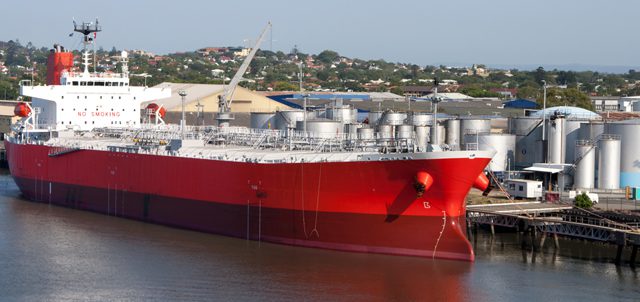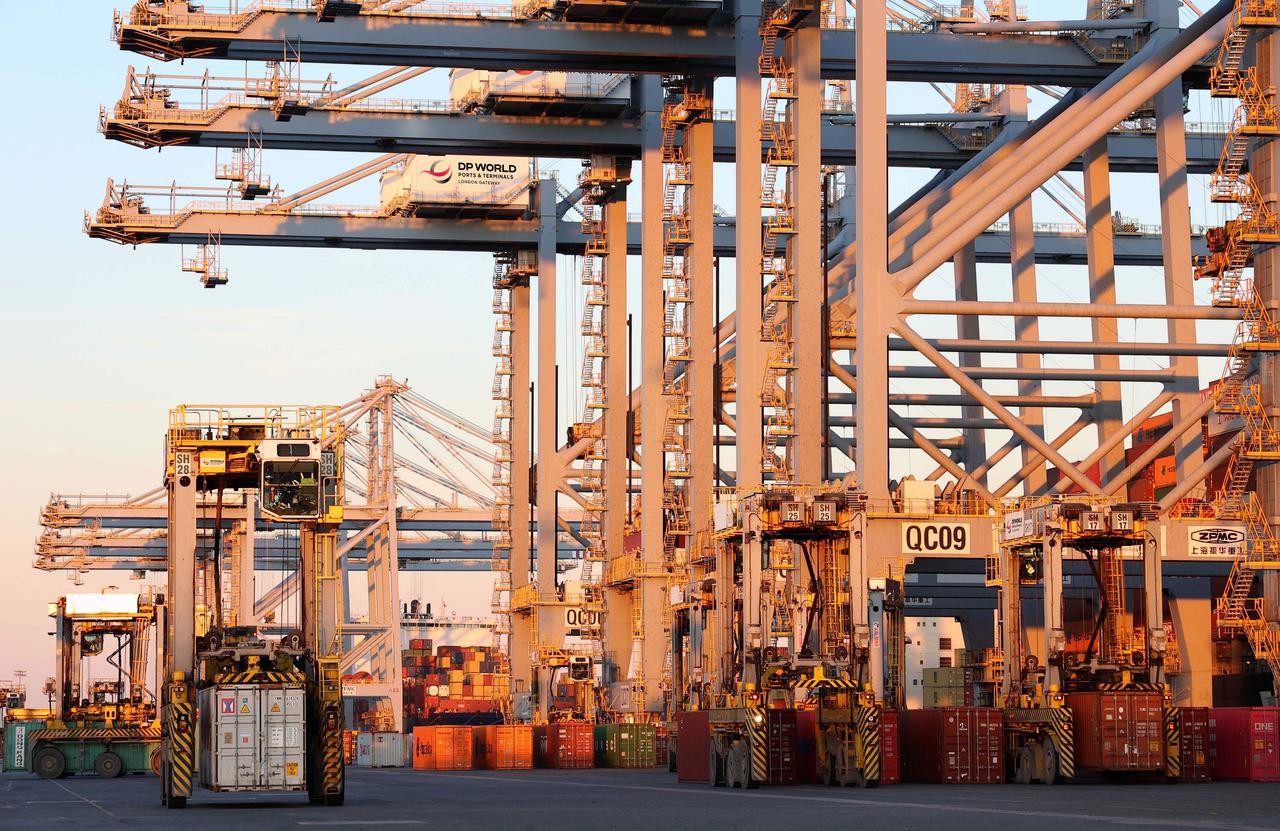A tanker loads in Brisbane, file image (c) Shutterstock/Claudine Van Massenhove
A small article in The Australian, Australia’s national newspaper, has signaled that the merry-go-round on Australia’s coastal shipping policy will continue. The new government, voted in three weeks ago, confirmed it will be reviewing the Shipping Reform package that was officially launched July 1st, 2012 after a multi-year industry consultation process.
The aim of the Shipping Reform package is to “revitalise Australian Shipping,” as Anthony Albanese, the then Minister for Transport put it. With the introduction of accelerated depreciation, tax breaks and an international shipping register, the model was set up to try and win back those companies that had moved overseas over the last 40 years in search of just those incentives.
The package also included a new system for licensing ships carrying cargo on the Australian coast. The movement of bulk products such as iron ore, coal and Bauxite, containers, as well as oil products from refineries are shipped the length of the Australian coast. The aim was that over time, the majority of ships carrying Australia’s interstate cargo would be Australian-flagged.
So what is the Australian shipping industry and what are we trying to achieve by revitalising it?
When I started at sea in 1992 as a green deck cadet, Australia had a mere 60-large merchant vessel fleet. A surprising figure, given the size of the country, which is about the same size as the U.S.; Australia has about 25,760km or 16,000 miles or so of coastline. Now just 20 ships service coastal waters, so foreign ships are utilised to fill the void.
And why not? In terms of wages alone, a Filipino rating will earn in the order of $US1,100 per month for a nine-month stint, whereas an Australian rating will earn around $US 600 per day, with each turn aboard being between four and ten weeks. It’s obvious then that using an Australian-manned ship is unsustainable when competing in the global economy.
Of course I don’t deny these seafarers their wages. They are living in completely different economies with different living needs. However, the effect that these wages have on the cost of shipping items around Australia is significant.
As it is, merchant shipping in Australia employs just 27% of the workforce. In the heyday of the 1980s and 1990s, that percentage was significantly higher when more companies registered their ships in Australia and ran them with Australian crews. Now about 48% of Australian seafarers are employed in the offshore oil and gas industry, with the remaining 25% employed in harbour towage.
Having had the task of manning a ship in Australia, I know what we’re up against. Finding the right people with the right experience who are willing to work on these ships for the lower wages is a tough sell. Seafarers want the higher wages offered by the offshore industry. And so employees on the lower paid bulk carriers are typically transient in nature. Not an ideal situation for the long-term management of a vessel.
The position we now see in Australia could be described as ‘No man’s land’; halfway between what the Jones Act delivers in the United States, and a fully open coast. The Jones Act, which has been in force since the 1920s, requires that all goods transported by water between U.S. ports be carried in U.S.-flag ships, constructed in the United States, owned by U.S. citizens, and crewed by U.S. citizens and U.S. permanent residents. The Act delivers a vertically-integrated shipping economy, from ship design and building through to crewing and management of the vessel operating.
Shipbuilding in Australia was lost over two decades ago because using Australian yards was far too expensive and still is, much to the dismay of the unions. No changes are visible on the horizon, therefore, a move to Jones Act provisions here would be unsustainable.
A fully open coast also raises issues. Any ship carrying any Australian cargo would have no restrictions at all in respect of who can crew the vessel. Do we (the Australian public) want to see foreigners taking the jobs of Australians, albeit only a small number of jobs? Would the general public actually know any different? Not likely! But there is also the troubling fact that without a significant indigenous fleet now, we are already seeing qualified personnel being recruited from overseas to take local pilot and ship manager positions.
The Bass Strait trade, which services my home of Tasmania, has been described as the most expensive stretch of water in the world. Opening the coast to allow foreign ships on this route would certainly deliver savings. But it would be difficult, as changes would be required to the immigration act and a number of other pieces of legislation.
So where does that leave the Australian shipping industry and what will happen if this new government review goes ahead? It’s anyone’s guess.
So far, the Shipping Reform package has had very limited success. One ship has moved onto the International register and to date, no newbuilds have been ordered to take of the accelerated depreciation. As a result, the same continuous mix of indigenous and foreign ships carry our cargo between states.
Will any changes made by the new government resolve the problem? Probably not. No one will want to go to the extreme of a Jones Act scenario, it would not work under current circumstances. Or alternatively, fully open up the coast to foreign ships in a union-dominated industry. Any changes could only be very small when compared to these extremes. Frustrating as it is, I predict that for the next few years, even decades, we’ll still be asking the same old question ad nauseam: How do we manage — and prosper from — Australia’s coastal shipping?
 Chris McGuire is director of McGuire Consulting, an Australian based consultancy that provides operational, educational and compliance services. McGuire Consulting also provides a valuable local resource to foreign owners and managers in the greater Australasian region. For more information please visit www.mcguireconsulting.com.au or connect with him on linkedin au.linkedin.com/in/mcguireconsulting
Chris McGuire is director of McGuire Consulting, an Australian based consultancy that provides operational, educational and compliance services. McGuire Consulting also provides a valuable local resource to foreign owners and managers in the greater Australasian region. For more information please visit www.mcguireconsulting.com.au or connect with him on linkedin au.linkedin.com/in/mcguireconsulting

 Join The Club
Join The Club












